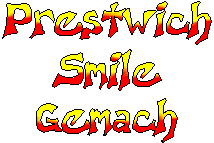

-
B"H - A Hebrew abbreviation for Boruch Hashem, meaning "Blessed is G-d". It
is used to express gratitude to G-d and recognition of the fact that
all of our success and health comes from Him.
-
Bris milah - The name of the ceremony usually
performed on a Jewish boy when he is eight days old. The words
literally mean "covenant of circumcision" and refer to the
fact that at the time that G-d commanded Avrohom Ovinu (the patriarch
Abraham) to circumcise himself and his son, He also made a covenant
with him to give his descendants the land of Cana'an on condition that
they keep the commandments that He would give. By performing bris
milah on our sons, we reaffirm that covenant and resolve to
observe G-d's commandments.
-
Brocho - Hebrew word that is usually translated as
"blessing". As with most translations of Jewish concepts,
this is only partly accurate.
-
Chosson - Hebrew word for bridegroom. He is known as
a chosson from the time of the engagement until eleven months after
the wedding.
-
Chumash - The five books of the Pentateuch, often
referred to as the Five Books Of Moses. The word "chumash"
is from the Hebrew word meaning "five".
-
Ducket - Strictly speaking this is an English word,
but is only used in the North-East of the country. It refers to a
small space (like the love compartment of a car), but has been used at
the PSG to describe our downstairs toilet which is a pretty small
room.
-
Gemach - A Hebrew abbreviation composed of the three Hebrew
letters gimmel, mem and ches, it stands for
gemillas chasodim which literally translates as "acts of
kindness". A gemach is commonly an organisation that has a store
of something which it lends out for free. Manchester has many gemachs,
offering free loan of tables, benches, prams, time switches, brides'
dresses, etc.
-
Hashem - Literally "The Name". A Hebrew
word used to refer to G-d when the use of His real name would not be
allowed. There is a Biblical injuction against using any of Hashem's
names unecessarily and so the name Hashem is used instead.
-
Klal Yisroel - Hebrew for "the congregation of
Israel", refers to the Jewish people as a whole.
-
Mishna - Included in the Torah
which Moses received on Mount Sinai, was a huge amount of laws
regarding all aspects of Jewish life. These explain and elaborate on
the precepts hinted at in the chumash. Originally they were handed down verbally
from a Rabbi to his students and were not allowed to be written
down. During Roman times, the Sages of the day were being murdered by
the government at such a high rate that Rabbi Yehuda HaNossi (the
leader of Jewry at the time) took the brave step of arranging these
laws in order and committing them to writing. This compilation of laws
is known as the mishna (plural mishnayos).
-
Peckle - Yiddish for a small package or parcel. Often
used to refer to a bag of sweets or other goodies given out at
parties, thrown at the chosson at his wedding
and so on.
-
Pesach - The festival of our redemption from
Egypt. Pesach always occurs in the springtime, a time which is
associated with redemption. Observance of Pesach involves the Pesach
Seder at which four cups of wine are drunk and matzo (unleavened
bread) is eaten.
-
Shass - A Hebrew abbreviation for "Sisha
Sedorim", meaning the Six Orders (or sections) of the oral
law that was handed to Moses on Mount Sinai along with the written law
(that we now have as the chumash). Used to
refer to either the complete set of mishnayos
or to the Talmud.
-
Shiva - Hebrew word for "seven", used to
refer to the seven day period of mourning which is observed after the
death of a parent, sibling or child.
-
Simcha - Hebrew (n) for "celebration" or
"joy". Often used to refer to a happy event (such as a
wedding). Also commonly used as a boy's name.
-
Tallis - A four cornered garment worn by Jewish males
in accordance with the instructions found in Bamidbar
(Numbers) 15:37-41. They come in two versions, the small tallis
kotton, worn under the shirt and the larger tallis godol worn over the
clothes during morning prayer services. All talleisim have fringes at
each corner.
-
Talmud - Known in Hebrew as the Gemora, this
is a collection of debates and discussions of Jewish law, based on the
oral tradition recorded in the Mishnah.
-
Torah - depending on the context, refers to either
the chumash or the entirety of Jewish scripture
and oral tradition.
-
Tzaddik - A righteous person, one who devotes their life to
Torah and mitzvos. (feminine - tzedekas)
-
Yiddish - A composite language that developed in
Eastern Europe as a result of Jews being moved around by unfriendly
governments. It is mainly composed of German, but many dialects
contain large amounts of Hungarian, Russion, Polish and other Eastern
European languages. It is commonly used today amongst Orthodox Jews
whose origins lie within the old Eastern European communities.

Fantastic web page (c) 1996-1998 PSG Inc Plc etc etc
Web page design by Flying Ferret Web Services

